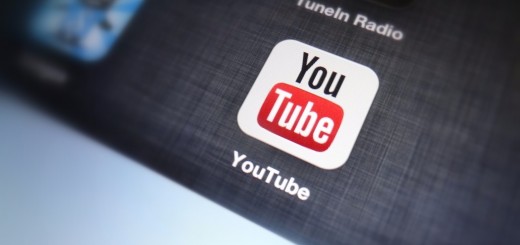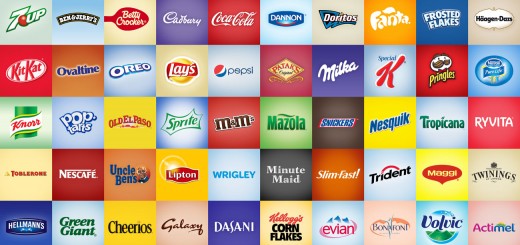Why partnerships matter for Facebook
When Facebook first announced its agenda of over a 100 meetings at this year’s Cannes Lions International Festival of Creativity, one only wondered what the objective could be. Is the social media giant going the Google way where too many specialists are creating more confusion than simplification for marketers? Is the platform pressurised about keeping up its good advertising revenue run and is altering its strategy to stay ahead of the game? Or is it just evolving at a pace that is transforming it into a true 21st century media company leading to those many more talking points?
No matter how you look at it, there is no denying that Facebook knows the importance of storytelling and it has crafted a compelling narrative for itself. On the sidelines of the 2015 Festival, Facebook’s senior team that manages ‘business marketing’, ‘agencies relationships’ and ‘global client accounts’ as Facebook calls it, spent time with Digital Market Asia reflecting why Facebook puts a premium on partnerships in its overall strategy.
The narrative for this team essentially begins with the changing face of Facebook where left brain conversations have steadily made way for right brain conversations. Will Platt-Higgins, VP, Global Accounts, Facebook admits that while on the one hand, Facebook has a much larger story to tell today given its products such as Instagram, Atlas and LiveRail in addition to the flagship offer, on the other hand, marketers and agencies realise that the Facebook they knew a few years ago is very different from Facebook today. Facebook is mobile. In just one year alone, more than 250 million people are now coming back to Facebook on mobile, bringing that totally to 1.25 billion people. To put that into perspective that means that of the 1.44 billion people that are on Facebook, almost 90 per cent come back on mobile.
Last year was a watershed year where Facebook had amassed a large body of work that was establishing its role as a partner driving business objectives for its clients. “We have been on a journey with clients and we can show how our relationship has worked for them.”
“There is a three-part agenda we have, which is why you see us at larger events, such as Cannes and others, in a much more significant way than in the past,” explained Sarah Personette, Head of Global Business Marketing, Facebook and Instagram, adding, “There are different kinds of audiences that Facebook works with. It is important for us to offer a balance in the creative community with our various offers and demonstrate how inspiration meets the mobile creative canvas. The second aspect is making an impact on business objectives whether it is generating leads or driving other targets. Finally, the third area is connecting with publishers on their growth through offers like LiveRail and Atlas.”
Rise of the Facebook ‘family’
For most marketers and businesses, there is immense interest in working with the flagship Facebook brand. However, the other conversations that are now keeping the team busy are around Facebook’s younger products including Instagram, Atlas and LiveRail. Mr Platt-Higgins divulged that Instagram specifically is seeing growth and popularity as marketers “don’t want to be last to the Instagram party.” Today, Instagram has more than 300 million people with more than 70 per cent of people coming from outside of the US. He also added, “LiveRail is very interesting as it has all principles of the fundamental FB targeting, and Atlas is a compelling notion because it is akin to a giant X-Ray machine that speaks the truth.”
Facebook has earned its place on the marketer’s table.The company’s initiatives including bandwidth targeting to be available on lower-end feature phones in fast growth markets or helping the marketer in increasing the visual appeal of a narrative has helped it in achieving this. In the past year its Creative Shop team invested in a global program called Creative Accelerator to help brands like Nestle, Coca-Cola, Samsung, Durex, Virgin Mobile develop successful campaigns in India, Indonesia, Kenya, and South Africa. The team is now expanding the program globally based on demand from other clients and agency partners.
Ms. Personette explained, “We need to work seamlessly within the organisation to be able to build better experiences for people and consequently advertisers. Our engineers work on back and front-end solutions to make sure the advertising experience is good for people. Our teams want to help businesses create the right experience for people depending on larger aspects on how people behave on different mobile devices in every country.”
However, in the course of the growth of the various FB products, according to Mr Platt-Higgins, the larger challenge has been the ‘organisation complexity’. “Beginning a dialogue with the marketer, the agency partner, and the Facebook team to explore the opportunity is simple but after that, to keep adapting to the changing ecosystem and the way the teams respond to that, is challenging. This is not the media where we spring back to our desk, and keep following a pattern over and over again. It is all, always new. We know how to do it. But for us as human beings, sometimes the pace of aligning to change in capability and requirements can be paralysing. We have to talk to consumers not where they were but where they are today, and that can be hard.”
The global partnerships ‘trifecta’
In addition to brand side clients, Facebook is extremely clear with the role that agencies play in its life. “When a conversation begins with any client directly, our first advice is to get all stakeholders, most importantly the advertising and media agencies on board. One of the hallmarks of making things move faster is agency integration from the get go because that is how you leverage insights and achieve so much more,” explained Mr Platt-Higgins.
Completing the team is Patrick Harris who leads the relationship with Global Agencies. Mr Harris and his team have doubled down with agency partners all over the world. “Agencies are a critical part of Facebook’s mission to deliver better solutions for businesses and helping connect brands with people in a relevant, personalised way,” Mr Harris explained.
Facebook has invested in people, tools and innovation across multiple business areas for agencies — in global partnerships (setting up a Global Agency team), local-level activation (building new Local Agency teams), creativity and brand building (Creative Shop and Instagram), education (Agency Marketing), plus measurement (Atlas).
Facebook continues to make investments in its agency partners to bring better education, deliver new case studies, plus better insights.
Earlier this year, Facebook launched Blueprint, which is a new education program that helps to train agencies, partners and marketers on how to use Facebook, so they can create better campaigns that drive business results. Since the launch of the new online program, there have been more than 100,000 course enrollments, with most of the traffic coming from India, Brazil and the US. The program will continue to be translated in new languages throughout the year.
In its fourth year, the team also continues to invest in Facebook Awards to celebrate great work on Facebook and Instagram, but to also help its partners learn new best practices. In 2015, there was a 49% increase in submissions with more global work from 160 countries, which were twice as many countries submitted to the Awards in years past.
Last year, Facebook also launched FBIQ to help agencies embrace insights and data. In May 2015, the team also developed Facebook IQ Live to deliver new live events and showcase insights around moments that happen every day on its platforms, which aims to help unlock opportunities for growth amongst advertisers and agencies.
“Agencies partner with Facebook and Instagram for real-business results that scale globally and education to do better work, in a more efficient way. We want to be a partnership company for one simple reason – value creation. Partnering isn’t about getting people to like us, it’s about creating value for our partners and Facebook by leveraging each other’s assets and building lasting relationships with clear alignment,” said Mr Harris.
The Facebook teams know there is substantial work ahead and wants to collaborate with its partners to continue to build the best experiences for people and help businesses grow. “Partnership matters to Facebook. And we know that the future does not build itself, so let’s all build it together,” Mr Platt-Higgins summed up.





